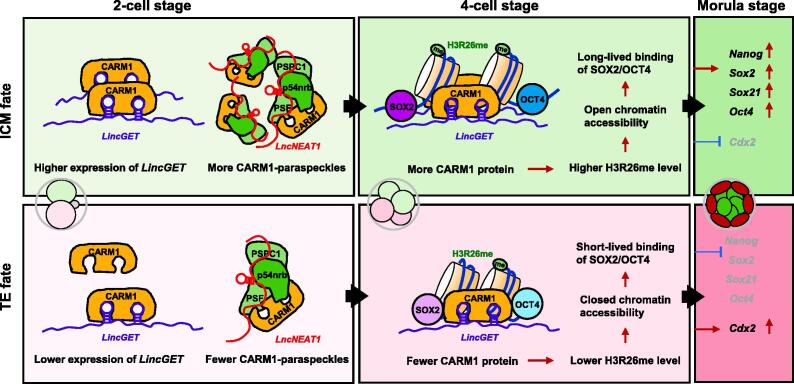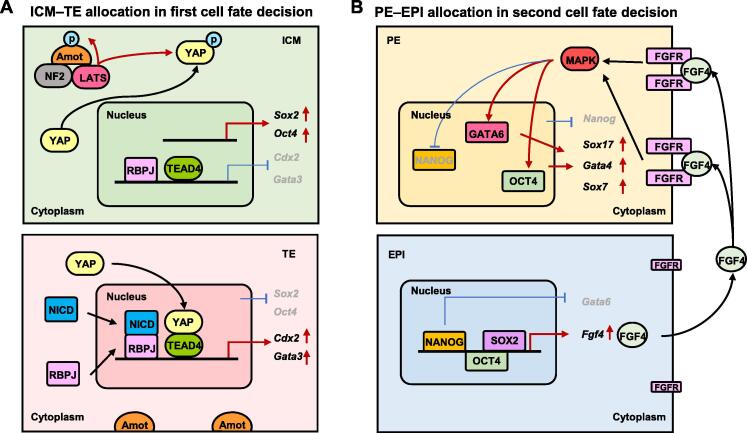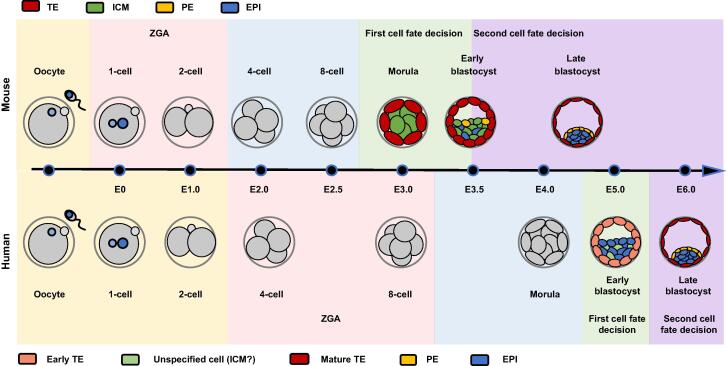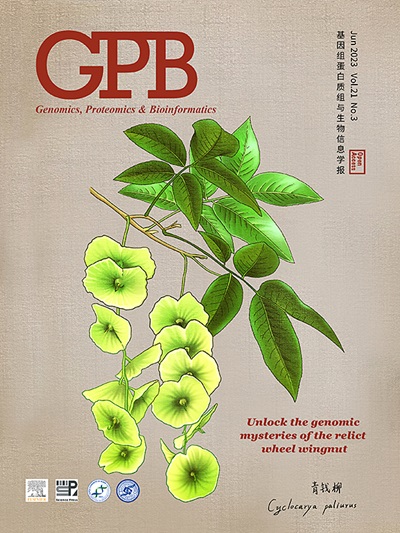Omics Views of Mechanisms for Cell Fate Determination in Early Mammalian Development
IF 7.9
2区 生物学
Q1 GENETICS & HEREDITY
引用次数: 0
Abstract
During mammalian preimplantation development, a totipotent zygote undergoes several cell cleavages and two rounds of cell fate determination, ultimately forming a mature blastocyst. Along with compaction, the establishment of apicobasal cell polarity breaks the symmetry of an embryo and guides subsequent cell fate choice. Although the lineage segregation of the inner cell mass (ICM) and trophectoderm (TE) is the first symbol of cell differentiation, several molecules have been shown to bias the early cell fate through their inter-cellular variations at much earlier stages, including the 2- and 4-cell stages. The underlying mechanisms of early cell fate determination have long been an important research topic. In this review, we summarize the molecular events that occur during early embryogenesis, as well as the current understanding of their regulatory roles in cell fate decisions. Moreover, as powerful tools for early embryogenesis research, single-cell omics techniques have been applied to both mouse and human preimplantation embryos and have contributed to the discovery of cell fate regulators. Here, we summarize their applications in the research of preimplantation embryos, and provide new insights and perspectives on cell fate regulation.



Omics 对哺乳动物早期发育中细胞命运决定机制的看法。
在哺乳动物胚胎植入前的发育过程中,一个全能的合子要经历数次细胞裂解和两轮细胞命运决定,最终形成一个成熟的囊胚。在压实的同时,顶基底细胞极性的建立打破了胚胎的对称性,并指导后续的细胞命运选择。虽然内细胞团(ICM)和滋养外胚层(TE)的细胞系分离是细胞分化的第一个标志,但在更早的阶段,包括 2 细胞和 4 细胞阶段,有几种分子已被证明能通过其细胞间的变化偏向早期细胞命运。长期以来,早期细胞命运决定的内在机制一直是一个重要的研究课题。在这篇综述中,我们总结了早期胚胎发生过程中发生的分子事件,以及目前对它们在细胞命运决定中的调控作用的理解。此外,作为早期胚胎发生研究的有力工具,单细胞全息技术已被应用于小鼠和人类植入前胚胎,并为发现细胞命运调控因子做出了贡献。在此,我们总结了这些技术在植入前胚胎研究中的应用,并为细胞命运调控提供了新的见解和视角。
本文章由计算机程序翻译,如有差异,请以英文原文为准。
求助全文
约1分钟内获得全文
求助全文
来源期刊

Genomics, Proteomics & Bioinformatics
Biochemistry, Genetics and Molecular Biology-Biochemistry
CiteScore
14.30
自引率
4.20%
发文量
844
审稿时长
61 days
期刊介绍:
Genomics, Proteomics and Bioinformatics (GPB) is the official journal of the Beijing Institute of Genomics, Chinese Academy of Sciences / China National Center for Bioinformation and Genetics Society of China. It aims to disseminate new developments in the field of omics and bioinformatics, publish high-quality discoveries quickly, and promote open access and online publication. GPB welcomes submissions in all areas of life science, biology, and biomedicine, with a focus on large data acquisition, analysis, and curation. Manuscripts covering omics and related bioinformatics topics are particularly encouraged. GPB is indexed/abstracted by PubMed/MEDLINE, PubMed Central, Scopus, BIOSIS Previews, Chemical Abstracts, CSCD, among others.
 求助内容:
求助内容: 应助结果提醒方式:
应助结果提醒方式:


